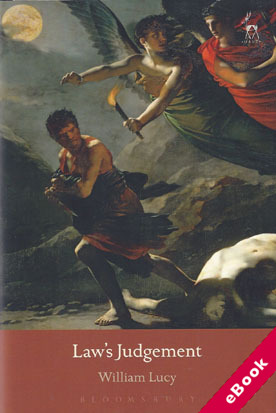
The device(s) you use to access the eBook content must be authorized with an Adobe ID before you download the product otherwise it will fail to register correctly.
For further information see https://www.wildy.com/ebook-formats
Once the order is confirmed an automated e-mail will be sent to you to allow you to download the eBook.
All eBooks are supplied firm sale and cannot be returned. If you believe there is a fault with your eBook then contact us on ebooks@wildy.com and we will help in resolving the issue. This does not affect your statutory rights.
Law's Judgement elucidates and defends a feature of contemporary law that is currently either overlooked or too glibly dismissed as morally troublesome or historically anachronistic.
That feature is the abstract nature of law's judgement and its three components show that, when law judges us, it often does so in ignorance of our particular characters and abilities, on the one hand, and in ignorance of our context and circumstances, on the other. Law's judgement is thus insensitive to all or much that makes us the particular people we are.
The book explores various connections between this mode of judgement and some of our most important legal and political values. It shows that law's abstract judgement is closely related to important juristic conceptions of personhood, responsibility and impartiality, and that these notions are not without moral significance.
The book also examines the connections between modern law's judgement and three of our most important political values, namely, dignity, equality and community. It argues that, if we value particular conceptions of dignity, equality and community, then we must also value law's judgement.
Illuminating these connections therefore serves a double purpose: first, it makes a case against those who counsel liberation from law's abstract judgement and, second, it redirects attention to the task of morally evaluating law's abstract judgement in its own terms.